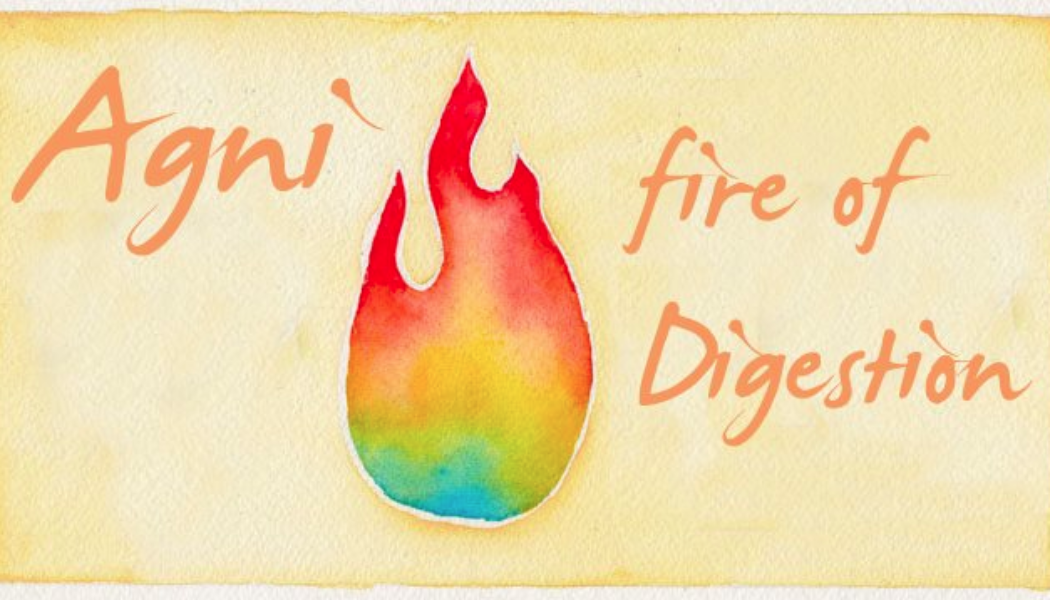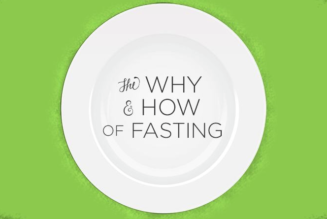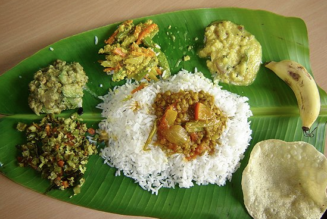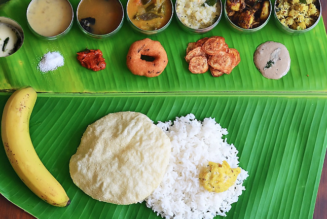Agni: The Fire of Digestion
In Ayurveda we place a strong emphasis on digestion. In fact, when treating illness, correcting the digestion is almost always the first line of treatment. Digestion is said to be the work of fire element in the body (called agni in Sanskrit). It is this fire that digests our food, provides us with warmth and produces the glow of good health. A properly nourished body with a balanced digestive fire aligns itself with nature and self-adjusts to weather the small shifts and ups and downs of daily life. In fact, sometimes just by improving digestion we can clear up stubborn health problems without any further treatment.
On a bigger scale though, agni is the agent of all transformation. Agni provides our actual capacity to transform the food—and situations, thoughts and emotions—that we take in so that it becomes nourishment. It is also our passion and enthusiasm for life. In a very real way, agni helps us “take a bite out of life.” Agni resides anywhere in the body where transformation takes place. However, the main digestive fire resides in the navel center and it determines the health of the agni everywhere else in our body. We can imagine it as the central fire in a village from which each household lights its own hearth. Encouraged by a gentle breeze within each of these spacious hearths, agni glows under an earthen clay pot filled with water. The meals cooked in that pot, nourish each inhabitant of the home.
When agni is healthy even “improper” food, thoughts, emotions and situations can occasionally be digested without too much difficulty. Conversely, we could eat the most nutrient-packed, health-promoting food and not receive its benefits, if our agni is not healthy enough to break the nutrients down into usable pieces. (This is one of the reasons that Ayurveda doesn’t really promote raw food diets. Raw foods haven’t undergone the transformation that makes its nutrients more available.)
If agni is either too weak or too strong it causes problems in the body and mind over time. However, even healthy agni fluctuates somewhat over time, responding to changes in its environment. For example, in the summer agni tends to burn with less intensity than in the winter, when the heat of the body is driven into the core to maintain the warmth of the organs.
Agni and Food Preparation
Essentially, digestion is a cooking process, so properly prepared food means less work for the body and better assimilation. Cooking with fire is, of course, recommended, but techniques like pickling with salt, acid or spices and fermentation are often used as well. However, it is important not to overuse these techniques, because they carry fire element into the body. The agents used in these processes (salt, vinegar, alcohol, citrus, pungent spices, etc.) can increase heat in the body and should be used in moderation by someone with a lot of fire in their constitution. The very best way to support your agni is to give it the proper time and space to do it’s job.
This means:
- Wait at least 4 hours between meals (with no snacking in between).
- Drink very little liquid with meals—or even within 1 hour of eating. Small sips of warm soup or tea may aid digestion, but a big glass of icy drink will smother the flame of agni.
- Eat only during daylight hours. Give the body at least a full 12 hours of night to perform the more subtle aspects of digestion—clearing out the organs and allowing them to rest.
- Eat only when you feel real hunger. If you don’t know what real hunger feels like, you should experiment a little bit with it (those with irregular or excess agni may often experience “false hunger”).
- Base your meal frequency and size on your level of activity on a given day. It could be as simple as this: the more physical or mental effort you put out, the more food you need.
- People with clearly slow agni may choose to fast or to eat very lightly one day a week so that undigested food which is clogging the system may be digested.








![Dinacharya – Daily Routine To Perfect Health [10 Important Tips]](https://healthyayurveda.com/wp-content/uploads/2015/08/Screen-Shot-2015-08-06-at-6.08.05-PM-327x219.png)
